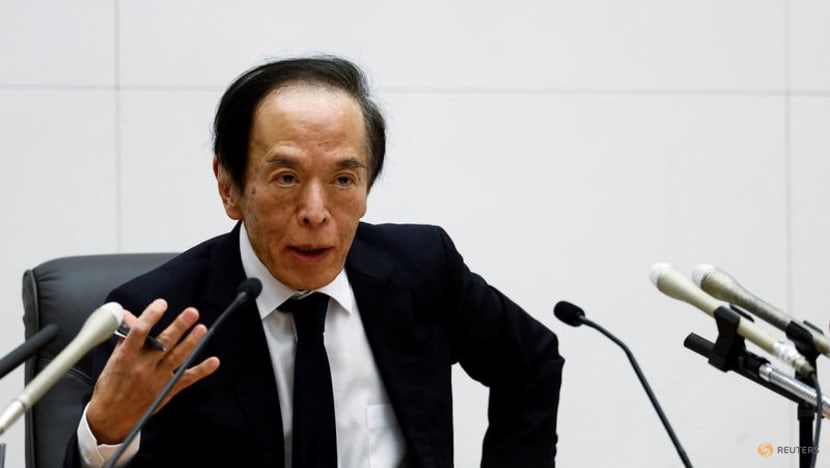BOJ governor says higher food prices in Japan may alter inflation expectations

FILE PHOTO: Bank of Japan (BOJ) Governor Kazuo Ueda speaks at a press conference after the central bank's policy meeting at BOJ headquarters in Tokyo, Japan January 24, 2025. REUTERS/Issei Kato/File Photo
TOKYO :Bank of Japan Governor Kazuo Ueda said on Wednesday the central bank will conduct monetary policy bearing in mind there are risks that food prices may continue to be high and affect people's inflation expectations.
"We're deeply aware that a rise of more than 2 per cent in prices of fresh foods and other commonly purchased products are negatively impacting people's lives," Ueda told parliament.
"Rises in the prices of food, including fresh food, won't necessarily be temporary and there's the chance that this will impact people's mindsets and price expectations," he said.
Ueda's remarks followed the BOJ's decision last month to raise short-term interest rates to 0.5 per cent, a level unseen in Japan for 17 years, underscoring policymakers' conviction the economy is on course to achieve wage-driven, durable price rises.
The overall consumer price index (CPI) rose 3.6 per cent in December from a year earlier, much faster than a 3.0 per cent gain in the core index that strips away the effect of volatile fresh food prices, driven by price spikes in fresh vegetables and the cost of rice.
Ueda has said such cost-push inflationary pressure is likely to dissipate toward the mid-year.
In gauging whether inflation will sustainably hit its 2 per cent inflation target, the BOJ focuses on underlying inflation, or the broad trend of price moves that strips away one-off factors such as fuel and volatile fresh food costs.
Ueda reiterated at the parliament session that the pace of the central bank's interest rate hikes will depend on economic, price and financial situations.
He also confirmed that the central bank will in June conduct a mid-term review of the its current plan to taper government bond purchases and come up with a new one for April 2026 onwards.
Last July, the bank said it plans to halve its monthly Japanese government bond purchases to 3 trillion yen ($19.52 billion) as of January-March 2026.
"We've formulated and are implementing our bond-taper plan based on the view that tapering should be done in a predictable manner with a certain degree of flexibility to ensure the stability of bond markets," Ueda told parliament.
($1 = 153.7100 yen)













